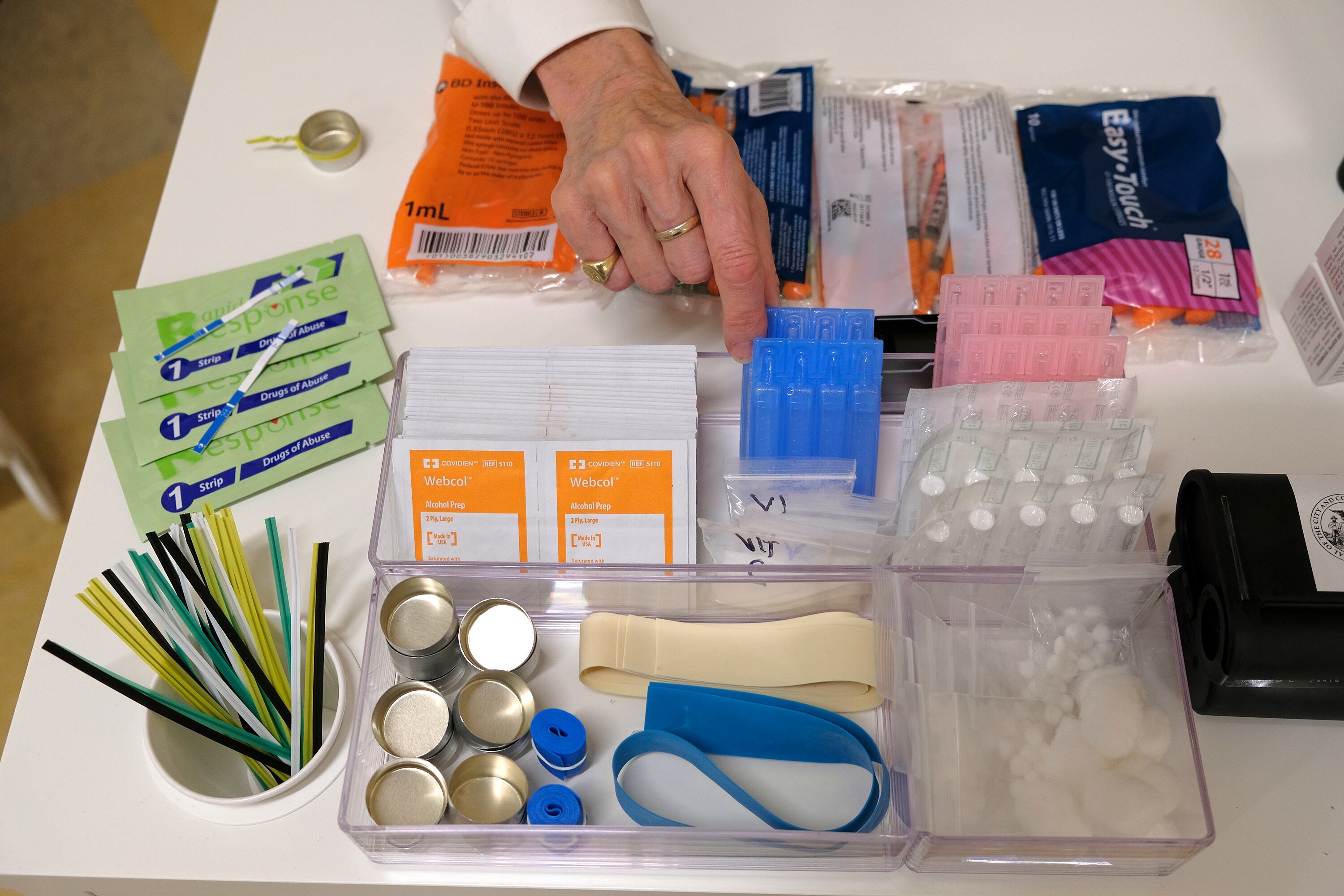A year after winning a major court battle against the opening of so-called safe injection sites -- safe havens for people to use heroin and other narcotics with protections against fatal overdoses — the Justice Department is signaling it might be open to allowing them.
In response to questions from The Associated Press, the Justice Department said it is “evaluating” such facilities and talking to regulators about “appropriate guardrails.”
The position is a drastic change from its stance in the Trump administration, when prosecutors fought vigorously against a plan to open a safe consumption site in Philadelphia. The Justice Department won a lawsuit last year, when a federal appeals court in Pennsylvania ruled that opening such a facility would violate a 1980s-era drug law, aimed at “crackhouses,” which bans operating a place for taking illegal drugs. The Supreme Court declined in October to take the case.
About six weeks later, the first officially authorized safe injection sites opened in New York City in November. The two facilities — which the city calls “overdose prevention centers” — provide a monitored place for drug users to partake, with staffers and supplies on hand to reverse overdoses. New York City is in a different appeals court jurisdiction that has not ruled on the centers.
Such sites exist in Canada, Australia and Europe and have been discussed for years in New York and some other U.S. cities and states. A few unofficial facilities have operated for some time.
Advocates have hailed them as a way to curb the scourge of overdose deaths. Drawing from the latest available death certificate data, the Centers for Disease Control and Prevention estimated that more than 100,000 Americans died of drug overdoses from May 2020 to April 2021.
Critics, however, argue that safe injection sites encourage illegal drug use and burden neighborhoods.
For months after President Joe Biden took office last year, the Justice Department — under Attorney General Merrick Garland — had refused to take a public stance on safe consumption sites. Officials now say they are weighing their use.
“Although we cannot comment on pending litigation, the Department is evaluating supervised consumption sites, including discussions with state and local regulators about appropriate guardrails for such sites, as part of an overall approach to harm reduction and public safety,” the agency said in a statement Friday to the AP.
The New York City sites so far have intervened in more than 125 overdoses among more than 640 users, many of whom have made multiple visits, according to OnPoint NYC, the organization running them.
Executive Director Sam Rivera said he was excited and relieved by the Justice Department’s statement. The group is eager to tell the agency about its work, he said.
“I believe they’re going to land in the right place here and we’ll be able to, together, really expand on this health initiative that’s saving lives every day,” he said.
Former Mayor Bill de Blasio, a Democrat whose administration allowed the centers to open, said the city’s attorneys believed that the federal statute is “aimed at drug trafficking, not at medical facilities,” as he characterized the consumption sites.
But U.S. Rep. Nicole Malliotakis, a New York City Republican, has urged Garland to work to shut them down, citing the appeals court ruling against the Philadelphia proposal last year. She told Garland in November that it is “imperative that you enforce this legal precedent,” and she wasn’t pleased to hear about the new Justice Department statement.
“Instead of stopping the deadly drugs streaming over our border, putting drug dealers behind bars and helping people receive the long-term treatment they need to overcome addiction, Democrat leadership is enabling illegal drug use,” Malliotakis said in a statement.
The Philadelphia project, called Safehouse, is still fighting for court approval to open. Safehouse lawyers Ronda Goldfein and Ilana Eisenstein said they hoped the Justice Department’s new statement “signals the prospect of a positive resolution, not just for Philadelphia but for any place in America that seeks to provide overdose prevention services.”
Some other arms of the federal government also have signaled some willingness at least to explore safe injection facilities, if not yet embrace them. Asked about the New York sites, White House drug czar Dr. Rahul Gupta told CNN in December he was “interested in looking at the science and data behind all of the emerging harm reduction practices.”
Later that month, the National Institutes of Health issued a call for harm reduction research that mentioned safe consumption sites, among other approaches.





